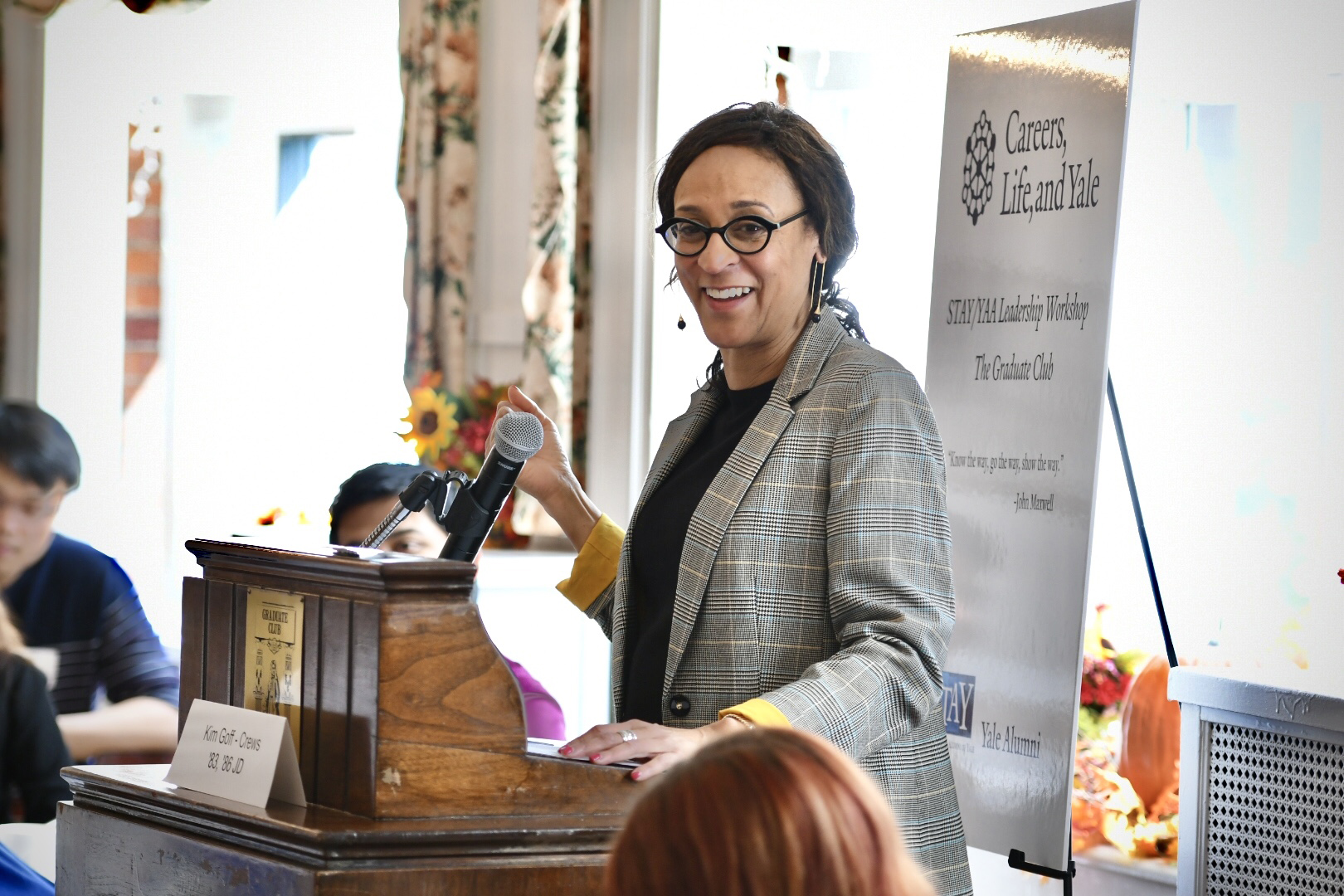
David Zheng
In an effort to encourage dialogue about controversial issues on campus, University Secretary and Vice President for University Life Kimberly Goff-Crews and her office assembled the Yale College Committee for Cultivating Conversation Across Differences.
Chaired by Dean of Yale College Marvin Chun, the committee also consists of Head of Grace Hopper College Julia Adams, Associate Vice President for Student Engagement Burgwell Howard and Dean of Student Affairs Camille Lizarribar, along with several student representatives. According to Assistant Secretary for Student Life Andrew Forsyth, the committee will convene to discuss ways in which students can enhance their dialogues with peers, regardless of ideological or political beliefs.
“The committee’s focus is one of the goals of Belonging at Yale: to foster a campus climate and culture where people of different backgrounds and identities, and with diverse perspectives and interests, can flourish,” Forsyth wrote in an email to the News.
Belonging at Yale was founded in 2018 and was launched to highlight diversity, equity and inclusion on campus. According to Forsyth, the committee was in part formed as a result of the University’s 2018 institutional assessment, which solicited feedback from all members of the Yale community, including alumni. A memo summarizing the highlights from the assessment, written by then-Senior Trustee Donna Dubsinky and current Senior Trustee Catharine Hill, noted that several alumni felt concerned about the state of free expression on campus. The highlights memo — which was emailed to the Yale community in August 2018 — stated that alumni were particularly worried that “self-censorship may compromise an open intellectual environment.”
“These alumni felt that Yale should reaffirm its commitment to the notion of free inquiry, even on controversial subjects, as being at the heart of the University,” Dubinsky and Hill wrote.
According to Forsyth, conversations with students during the institutional assessment also revealed that many do not feel prepared to discuss controversial topics, whether on campus or beyond. Forsyth added that the committee’s goal is to help alleviate this concern.
The committee will likely begin student outreach next semester, Forsyth said, and as of Nov. 21, no information about programming is available.
Committee member Kevin Swain ’20 referred official comment to Chun but told the News in an email that he hopes the efficacy of the committee will be felt for a long time to come.
According to committee member Kayla Bartsch ’20, discussions for programming remain in their early stages, but she is “quite glad that the committee exists and hopeful for what might be achieved through it.”
The committee — first created in late October according to Forsyth — came alongside a larger debate over the diversity of voices on campus. In one instance, several Directed Studies students objected to conservative political philosopher Harvey Mansfield’s invitation to speak on campus in October — which led to debate over whether or not students should engage over controversial ideas.
English professor Mark Oppenheimer ’96 GRD ’03 said while the committee seems well-meaning, it is difficult to change student culture on campus. He added that one method of encouraging diversity of opinion could be to model that diversity in the faculty, few of whom, in Oppenheimer’s view, have openly conservative views.
“Yale has put zero premium on viewpoint diversity in hiring or in admitting students,” Oppenheimer told the News. “So having created a monolithically liberal campus, it’s going to be pretty tough to get people to openly practice dissent.”
Goff-Crews told Yale News that while Belonging at Yale focuses on diversity in background, age, race and sexual identity, she also wants that list to include diversity of opinion.
“I think cultivating [conversation across differences] among our students is important for them as they move from Yale into the workplace and as leaders — and is especially important in the political moment we are in,” Goff-Crews said.
Yale’s institutional assessments are conducted every five years, beginning in 1998.
Valerie Pavilonis | valerie.pavilonis@yale.edu







